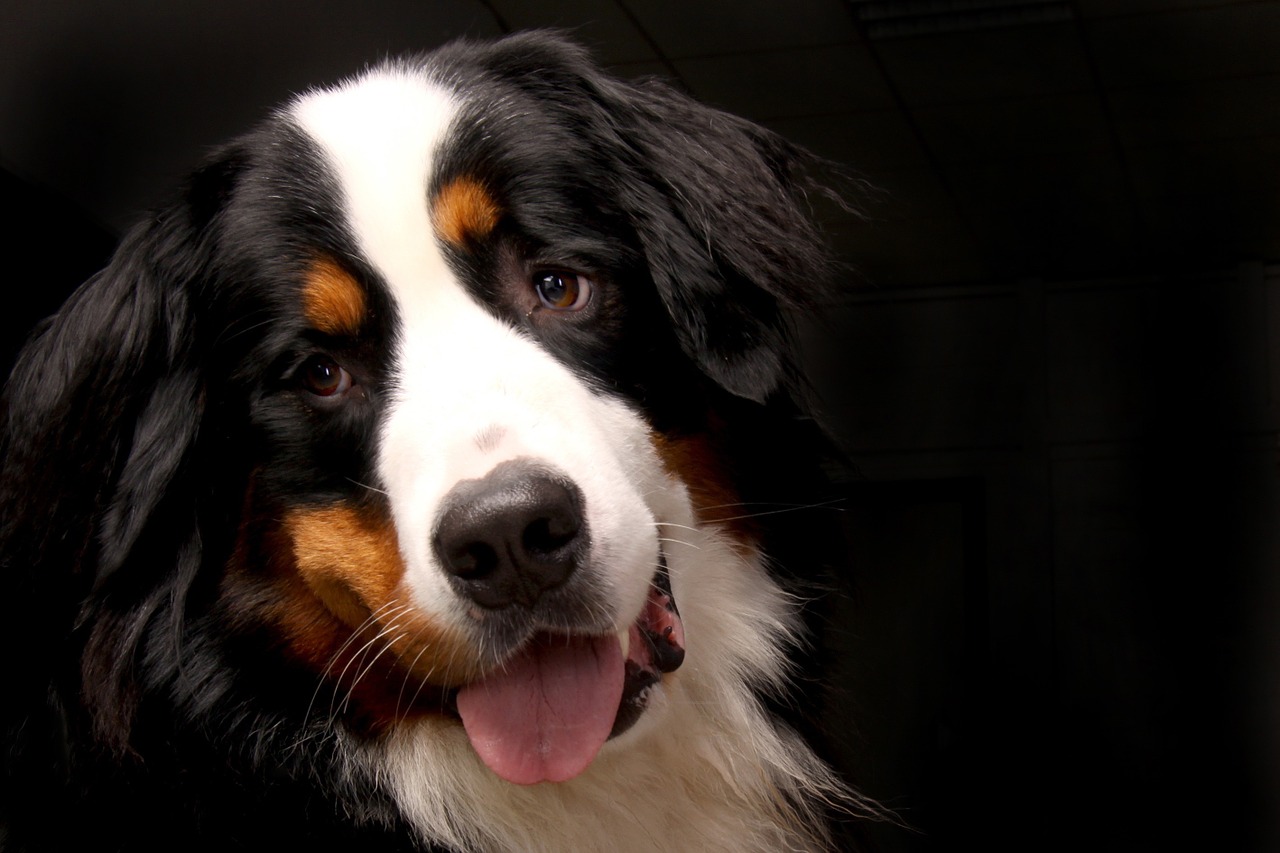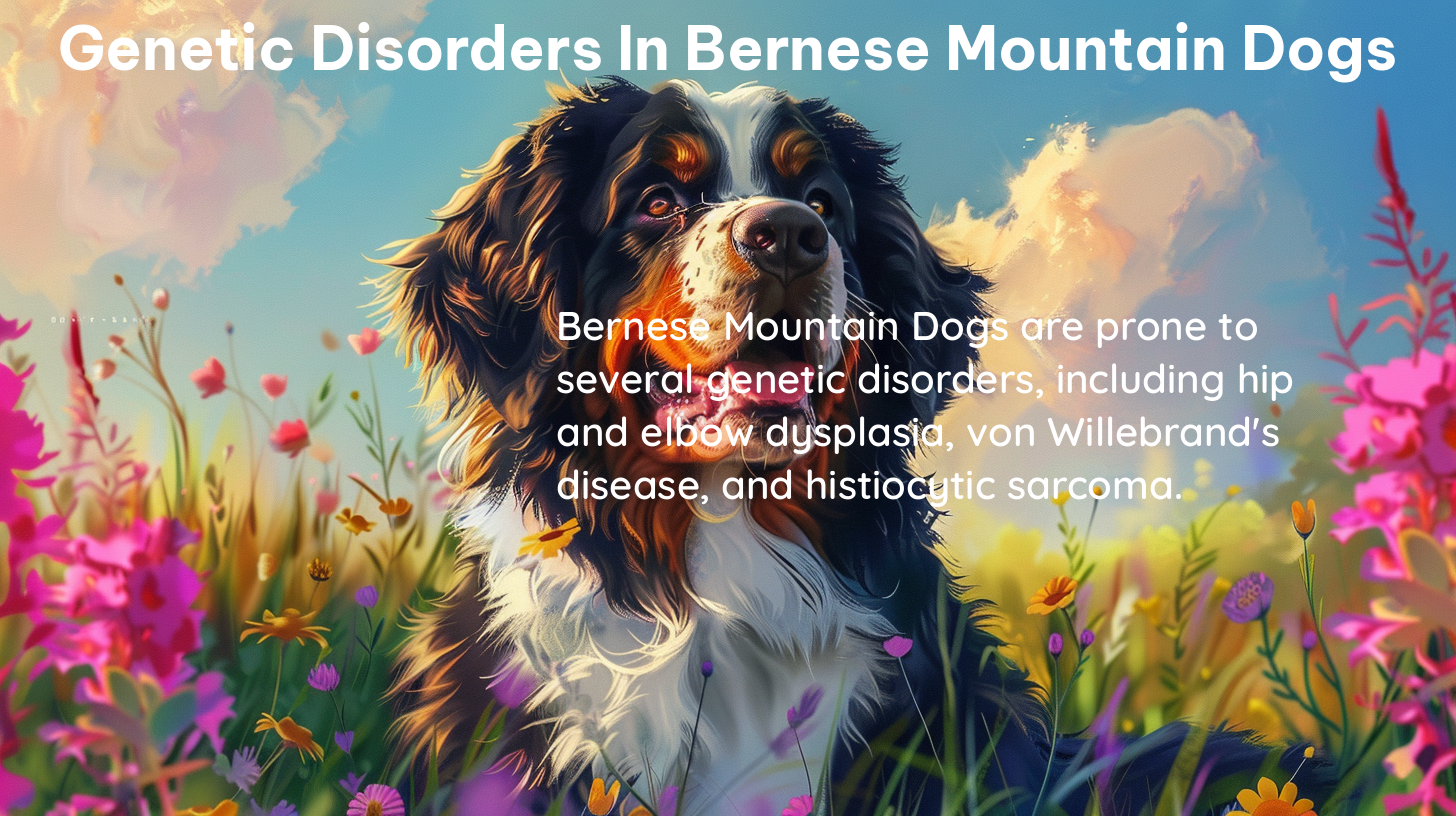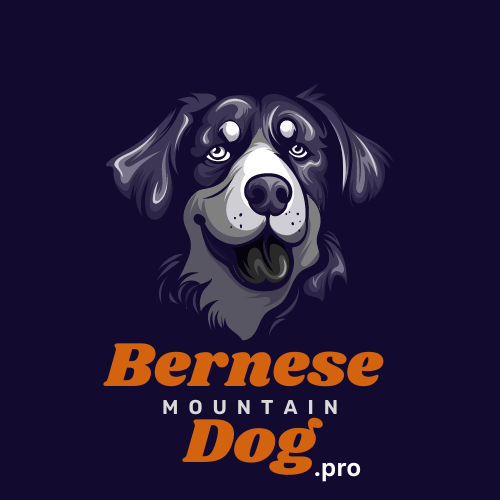Bernese Mountain Dogs are beloved for their gentle, affectionate nature, but they are also prone to several genetic disorders that can significantly impact their health and well-being. From degenerative myelopathy to histiocytic sarcoma, these dogs face a range of inherited conditions that require careful attention from breeders and owners alike.
Common Genetic Disorders in Bernese Mountain Dogs

-
Degenerative Myelopathy (DM): A progressive neurological disorder that affects the spinal cord, leading to muscle wasting and gait abnormalities. It is caused by a mutation in the SOD1 gene and has a recessive mode of inheritance. According to Embark data, 58.2% of Bernese Mountain Dogs test clear, 35.6% are carriers, and 5.9% are at risk for DM.
-
Von Willebrand Disease Type I (vWDI): A blood clotting disorder caused by a mutation in the VWF gene. It is also recessively inherited and can lead to clotting difficulties, nosebleeds, and excessive bleeding during surgery or injury.
-
Histiocytic Sarcoma: A type of cancer that affects the immune system, particularly dendritic cells and macrophages. It is a complex disease with multiple genetic variants involved, making it challenging to identify and manage.
-
Hip Dysplasia: A common orthopedic issue in Bernese Mountain Dogs, characterized by a malformed hip joint that can lead to arthritis and mobility problems.
-
Glomerulonephropathy: An inherited kidney disease that can cause kidney failure at an early age. It is often diagnosed through urine analysis and may require a special diet as part of the treatment plan.
-
Entropion: An eyelid abnormality where the eyelid rolls inward, causing irritation and potentially leading to blindness. It is a heritable disorder that can be surgically corrected.
-
Eosinophilic Panosteitis: A painful inflammation of the long bones in the legs, typically affecting growing Bernese Mountain Dogs. It usually resolves on its own but may require pain medication and rehabilitation exercises.
Inheritance and Genetic Testing

Many of the genetic disorders in Bernese Mountain Dogs, such as DM and vWDI, are inherited in a recessive manner. This means a dog must inherit two copies of the mutated gene (one from each parent) to develop the disease. Carriers, who inherit one mutated gene, do not show clinical signs but can pass the mutation to their offspring.
Breeders and owners can use genetic testing to identify carriers and affected dogs. This information can help in making informed breeding decisions to reduce the incidence of these disorders. Embark and Paw Print Genetics offer breed-specific genetic health tests for Bernese Mountain Dogs.
Reducing the Incidence of Genetic Disorders
-
Responsible Breeding: Breeders should prioritize genetic testing and selective breeding to minimize the risk of passing on genetic mutations. They should also educate themselves about the modes of inheritance, penetrance, and prevalence of specific variants in their breed.
-
Genetic Testing: Owners and breeders should use genetic testing to identify carriers and affected dogs. This information can help in making informed breeding decisions and reducing the incidence of genetic disorders.
-
Health Clearances: Breeders should obtain health clearances for their dogs on file with organizations like the Orthopedic Foundation for Animals (OFA) to ensure they are breeding healthy dogs.
By working together, breeders and owners can help reduce the incidence of genetic disorders in Bernese Mountain Dogs and ensure the long-term health and well-being of this beloved breed.
References
- University of Prince Edward Island. (n.d.). Bernese Mountain Dog. Retrieved from https://cidd.discoveryspace.ca/breed/bernese-mountain-dog.html
- Embarkvet. (2024). Genetic Health Testing for Bernese Mountain Dogs. Retrieved from https://embarkvet.com/resources/genetic-health-testing-for-bernese-mountain-dogs/
- Paw Print Genetics. (2015). Degenerative Myelopathy and Von Willebrand Disease I in the Bernese Mountain Dog. Retrieved from https://www.pawprintgenetics.com/blog/2015/04/20/degenerative-myelopathy-and-von-willebrand-disease-i-bernese-mountain-dog/
- East Cooper Animal Hospital. (n.d.). Bernese Mountain Dog – Breed Info. Retrieved from https://eastcooperanimalhospital.com/client-resources/breed-info/bernese-mountain-dog/
- NCBI. (2023). Genomic Diversity and Runs of Homozygosity in Bernese Mountain Dogs. Retrieved from https://www.ncbi.nlm.nih.gov/pmc/articles/PMC10048372/

Sarah Johnson
Sarah Johnson is a devoted Bernese Mountain Dog enthusiast and regular contributor to Bernese Mountain Dog Pro. With over a decade of experience in raising and training Berners, Sarah brings practical knowledge and passion to her writing. Sarah lives in Colorado with her two Berners, Max and Bella.